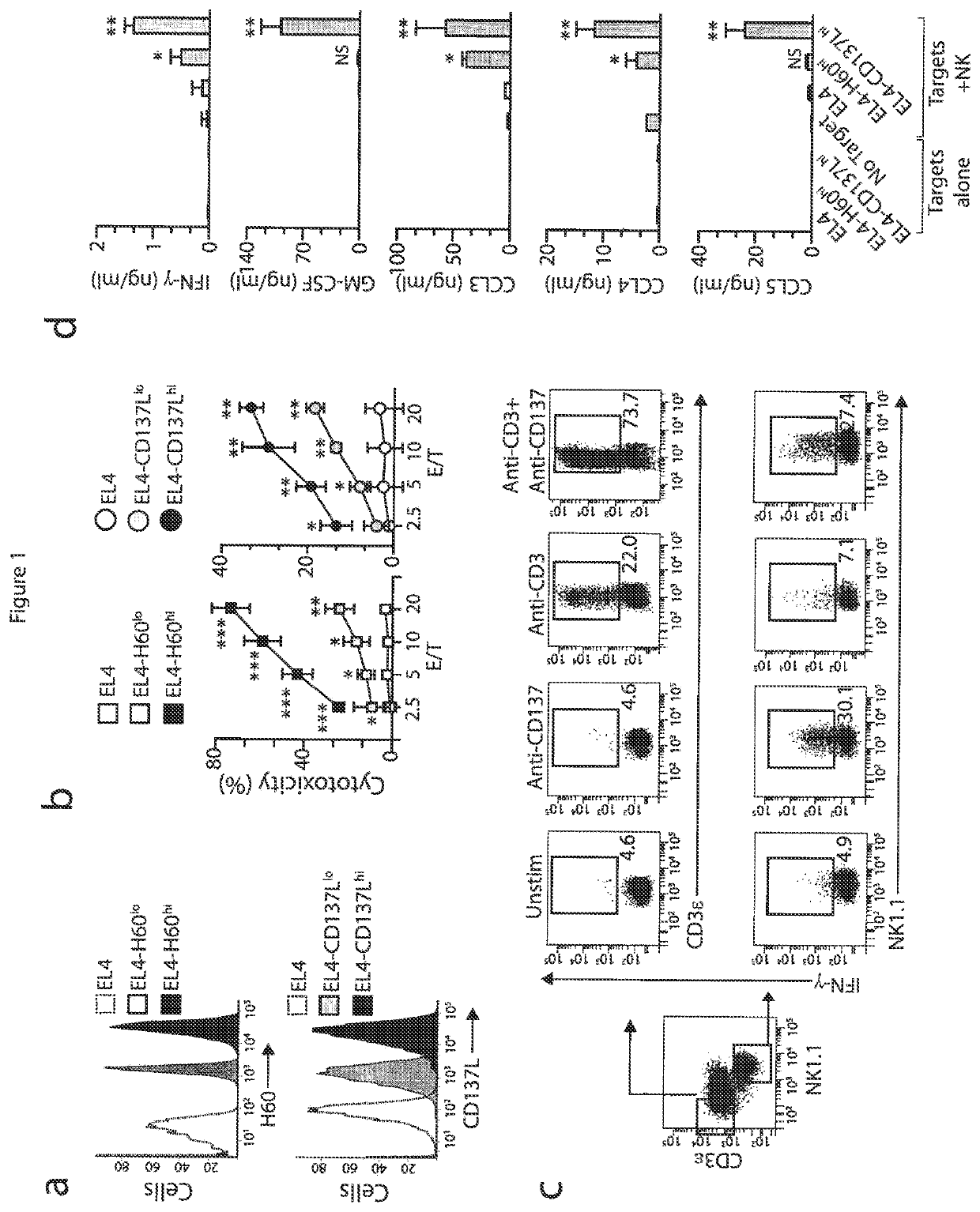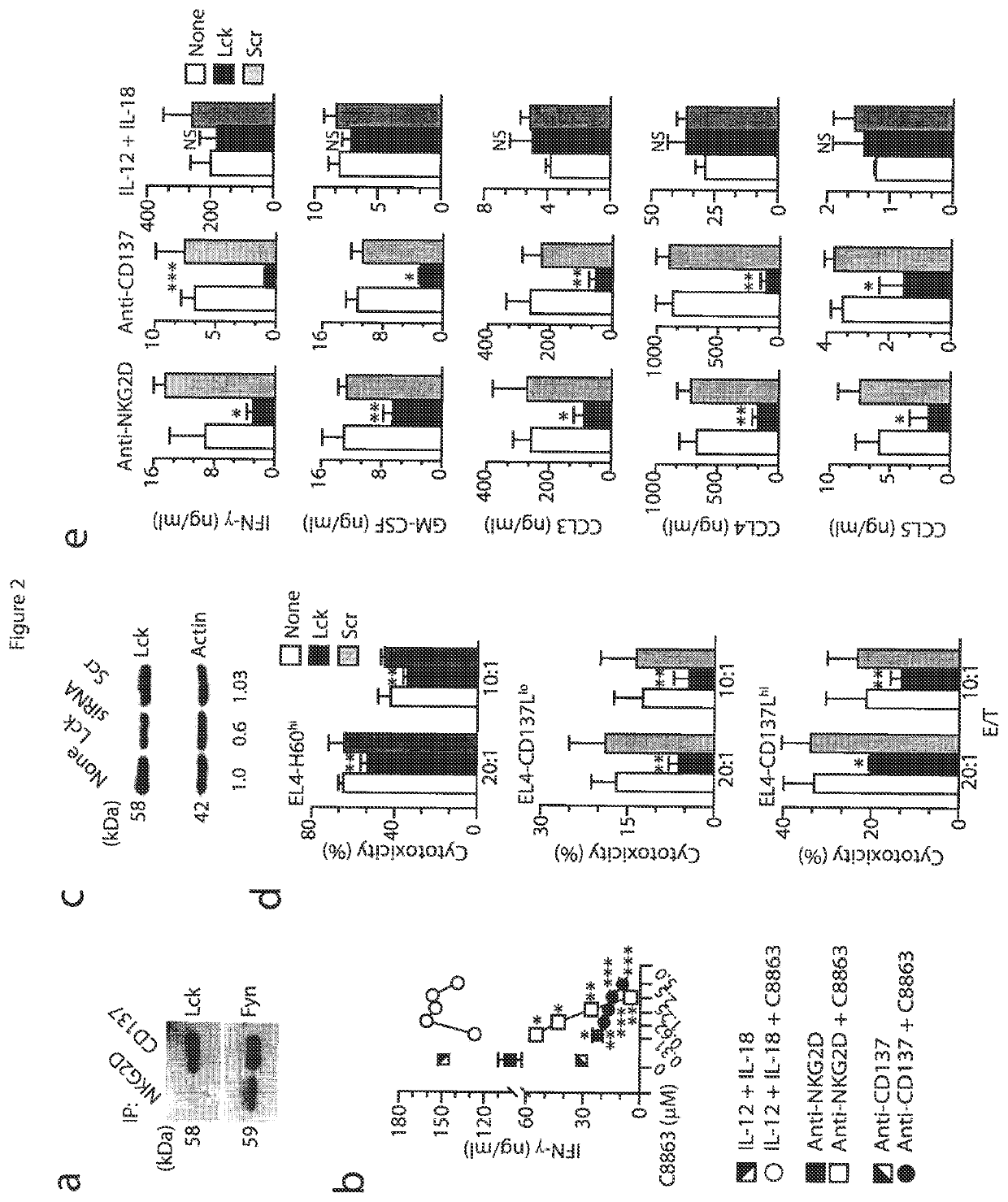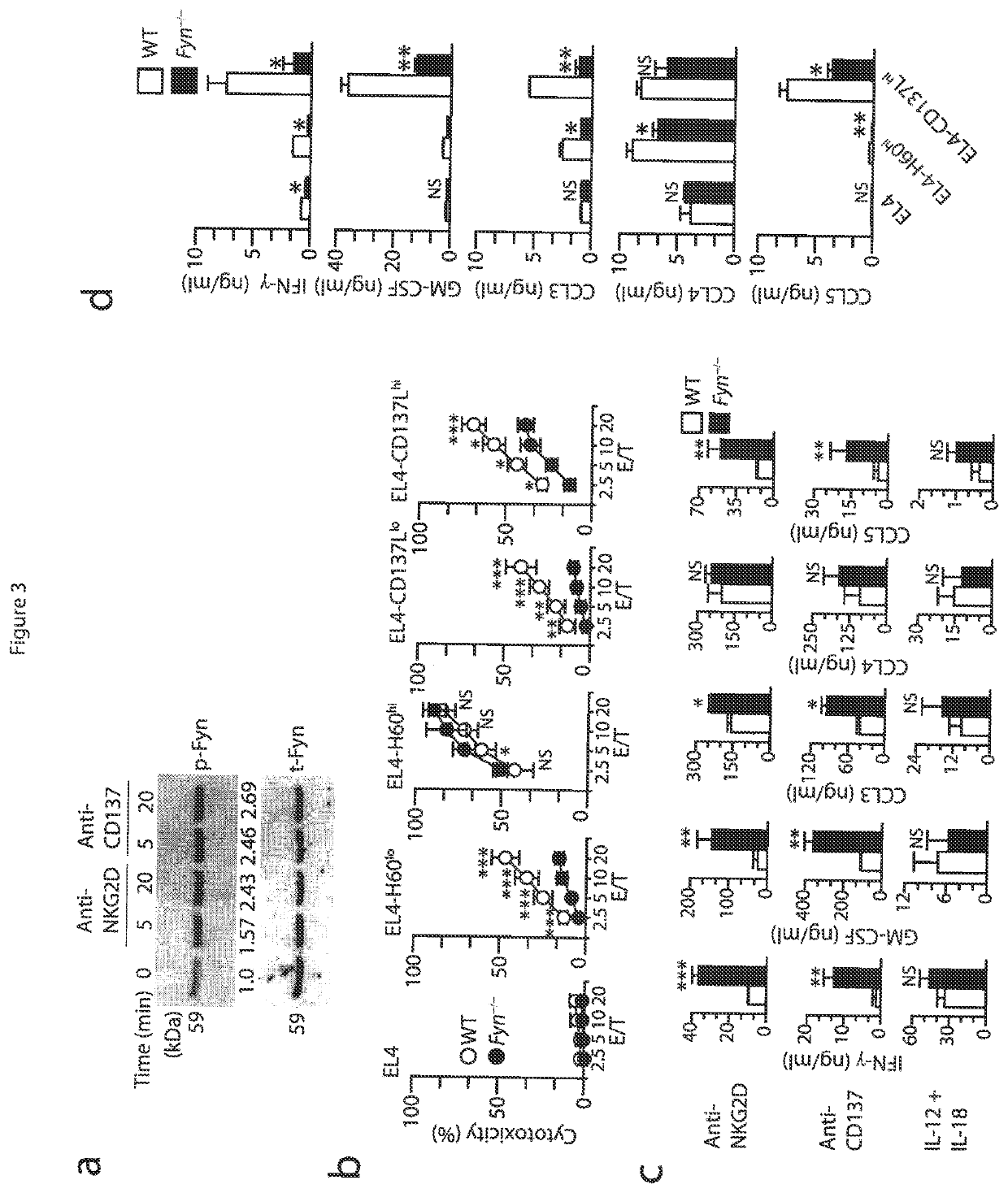Method of providing cellular therapy using modified natural killer cells or T lymphocytes
a technology of t lymphocytes and natural killer cells, which is applied in the superfamily of tumor necrosis factor receptors, can solve the problems that car-transduced t cells can also cause significant toxicities, and achieve the effect of reducing toxic cytokine releas
- Summary
- Abstract
- Description
- Claims
- Application Information
AI Technical Summary
Benefits of technology
Problems solved by technology
Method used
Image
Examples
examples
[0052]Mice and stable cell lines. C57BL / 6 (wild-type) mice and Fyn− / − (B6; 129S7-Fyntm1sor / J, B6; 129SF2 / J mice were from Jackson Laboratory. p110δ(D910A) (C57BL / 6) mice have been described (Okkenhaug at al., J. Immunol. 177:5122-5128 (2006)). Adap− / − mice were generated and backcrossed with C57BL / 6 mice for at least six generations (Peterson et al., Science 293:2263-65 (2001)) and were also a gift from K. E. Nichols. Carma1(ΔCARD) (C57BL / 6) mice and Carma1− / / − (C57BL / 6) mice have been described. See Newton et al., Curr. Biol. 13:1247-1251 (2003); Egawa et al., Curr. Biol. 13:1252-1258 (2003). Spleens from Map3k7fl / flMx1-Cre mice (Tang et al., J. Exp. Med. 205:1611-1619 (2008)) and Map3k7fl / fl mice (Sato et al., Nat. Immunol. 6:1087-1095 (2005)) were a gift from J. Zhang and Y. Xiao. All mice were maintained in pathogen-free conditions at the Biological Resource Center at the Medical College of Wisconsin and the Center for Immunology of the University of Minnesota. Female and male m...
PUM
| Property | Measurement | Unit |
|---|---|---|
| stability | aaaaa | aaaaa |
| fluorescence intensity | aaaaa | aaaaa |
| length | aaaaa | aaaaa |
Abstract
Description
Claims
Application Information
 Login to View More
Login to View More - R&D
- Intellectual Property
- Life Sciences
- Materials
- Tech Scout
- Unparalleled Data Quality
- Higher Quality Content
- 60% Fewer Hallucinations
Browse by: Latest US Patents, China's latest patents, Technical Efficacy Thesaurus, Application Domain, Technology Topic, Popular Technical Reports.
© 2025 PatSnap. All rights reserved.Legal|Privacy policy|Modern Slavery Act Transparency Statement|Sitemap|About US| Contact US: help@patsnap.com



